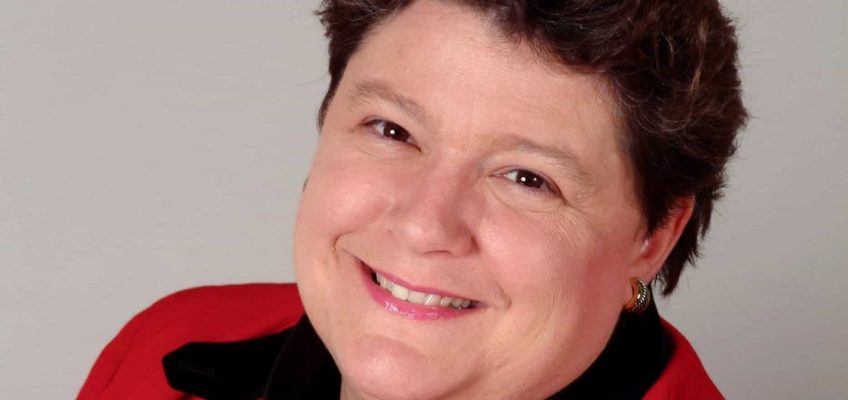This is a perilous time for college and university presidents in the United States. They are battered and beleaguered by grim demographics, bitter curriculum controversies, micromanaging alumni, and poisonous academic and partisan politics.
Many hunker down in their offices, huddling with legal teams and spin doctors, carefully avoiding substantive comments on public policy, civic life, electoral politics and academic challenges — on almost everything of importance.
Not Patricia McGuire, president of Trinity Washington University in northeast Washington, D.C.
McGuire, a Trinity alum, has been the school’s hugely consequential president for more than 35 years. Trinity was established in 1897 as the nation’s first Catholic liberal arts college for women. Analysts say it would have been shuttered several decades ago were it not for McGuire’s inspired and inspiring leadership. Her academic statesmanship combines words and action, kindness and toughness, softness and steel.
She thinks big, acts boldly and speaks clearly — and truthfully. While the dominant communication mode of many university presidents is platitudinous, cautious and evasive, McGuire chooses a different way. She is direct, forthright and authoritative. She knows what she believes, says what she thinks and is not afraid to act on her convictions. She refuses to be afraid, or timid, or small.
McGuire embodies several critical qualities of academic statesmanship.
She is a reformer.
When McGuire became the 14th president of Trinity in 1989, the school was in free fall, losing both students and purpose. McGuire understood that tinkering at the margins was not the road to success or even survival. Instead, she transformed Trinity from a school whose students were primarily daughters of upper-middle-class, white Catholics into one with a majority population of low-income students of color. She kept Trinity’s soul intact and then made sweeping reforms. In other words, McGuire pulled off a paradigm shift.
Today, Trinity’s student body is 55% Black and 30% Hispanic; many are first-generation college students from the District of Columbia public school system. Trinity has retained its commitment to the liberal arts, welcomes people of all faiths and aspires to be, in McGuire’s words, a place of “hope and justice.”
She is a builder.
McGuire reorganized the school and was the catalyst for Trinity becoming a university in 2004. She raised a lot of money and expanded its physical map with a $20 million Center for Women and Girls in Sports in 2003 and the $38 million Payden Academic Center in 2016. Enrollment, which had fallen to 300 in 1989, surged and then stabilized at 2,000. The all-female College of Arts & Sciences remains at Trinity’s core and is now complemented by its co-ed Schools of Education, Nursing and Health Professions, and Professional and Graduate Studies.
She is an operator.
McGuire is a hands-on administrator who knows Trinity like the back of her hand and manages the university with benevolent firmness and relentless attention to detail. She is also a visible and respected force in Washington political, business and civic organizations. She is frequently included on lists of the most powerful women in D.C.
She is a truth-teller.
Among McGuire’s most compelling qualities is her absolute refusal to avoid, evade or dissemble. She tells the truth, even when it makes some donors and supporters uncomfortable. In 2017, McGuire scorched prominent Trinity alum Kellyanne Conway for creating and disseminating “alternative facts” in the service of President Donald Trump. On her blog, McGuire blasted Conway for being “part of a team that thinks nothing of shaping and spreading a skein of lies as a means to secure power.”
McGuire argued that a second Trump presidency would be devastating for the nation. Nevertheless, she accepted the verdict when Trump won in November, saying, “Democracy had its way with us. … Democracy is all about winners and losers; if our candidate loses, we can’t say that Democracy failed — in fact, it worked.” She insists that those who oppose Trump’s agenda should not withdraw and brood but recommit to building strong, vibrant and inclusive communities. Champions of social justice must play the long game. They must work with excellence, commitment and gratitude — confident that the forces of good will prevail.
McGuire derides higher education’s fixation with rankings, obsession with data and terror of controversy. She challenges university presidents to flee “the bunkers of neutrality” and escape the clutches of lawyers and public relations operatives.
“Too many leaders have taken a vow of silence when it comes to addressing difficult issues in American life, even those that directly threaten the academy, our students, and faculty,” she wrote in The Chronicle of Education in 2022. “The implications for the future of higher education and this nation are dire if we presidents fail to break out of our posture of self-censorship and take our rightful places in the bully pulpit.”
Higher education, she argues, must reclaim the high ground and serve as a powerful counterweight to government. McGuire urges academic leaders to conduct themselves with purpose, courage and grace — and then she shows everyone just how it’s done.
John T. Shaw is director of the Paul Simon Public Policy Institute. His new book is “The Education of a Statesman: How Global Leaders Can Repair a Fractured World.” He wrote this column for the Chicago Tribune.


Leave a Reply